How to grow blueberries in your home garden. This delicious fruit is really easy to grow, care for and maintain. Plant the right varieties and have a full harvest all summer long.
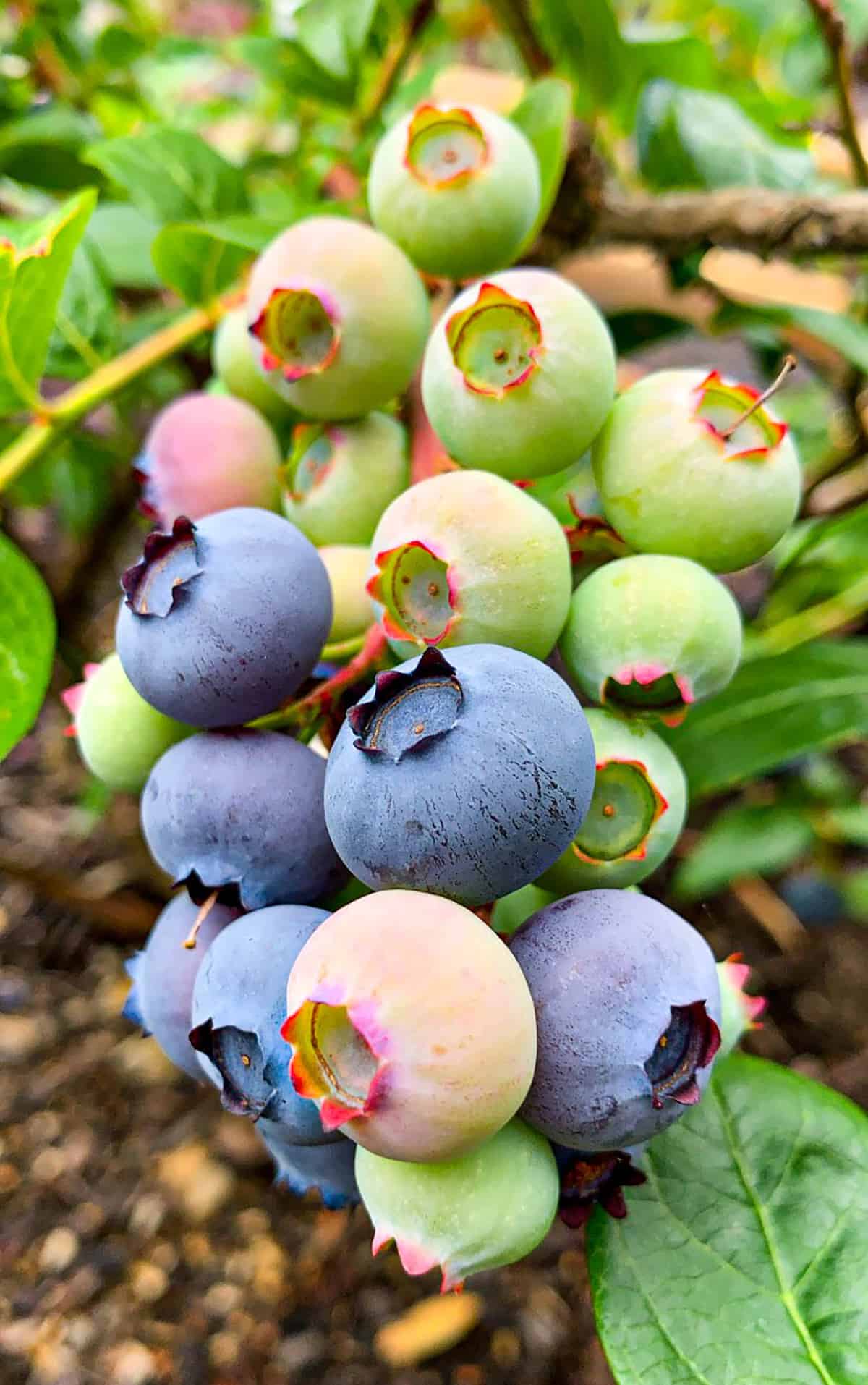
Nothing quite says summer like fresh berries. Especially blueberries. Everyone in the family loves them and we can't get enough. We go to local blueberry farms during harvest season, pick up at our farmers market and grow our own!
Berries can be so expensive in the grocery stores. And I don't know about you, but when I spend $5 on a small container of berries that get devoured in about 5 minutes, it just doesn't seem worth it.
What if I told you that you could have endless berries all summer long? That each morning you can go pick that container size for FREE from your own yard? Day after day.
Well, that is the case with my blueberry garden. I have 6 plants that produce hand fulls of blueberries daily throughout the summer. We even get enough to freeze for the winter.
I am sharing all my tips for growing your own blueberry plants in your own home garden this summer!
Benefits of Growing Blueberry Plants
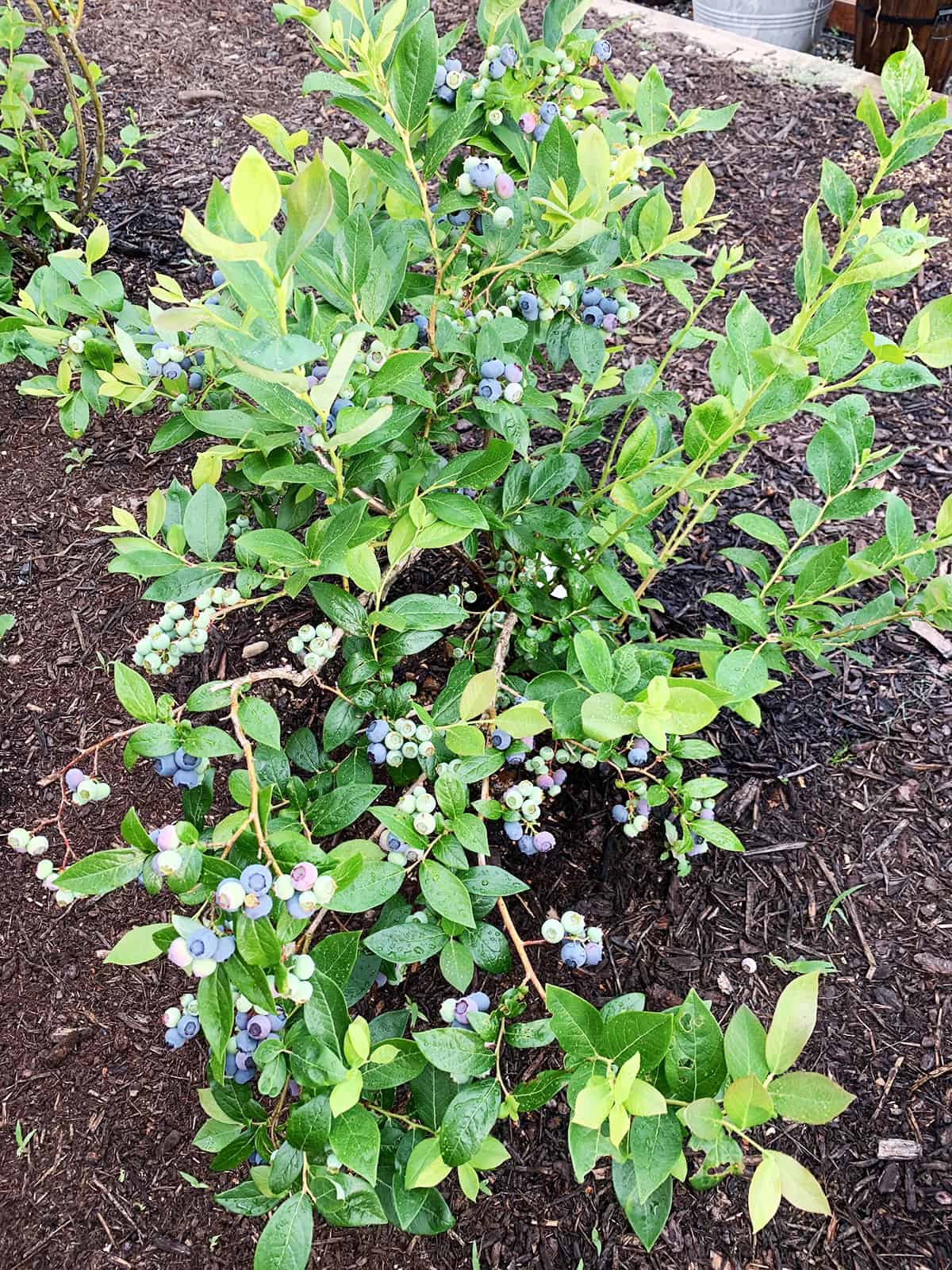
- They Are Easy to Care For
- They get Bigger and Better Every Year
- Fresh Berries all Summer (and Winter) Long
- They freeze really well. Learn how to freeze blueberries.
- They look good
When you get your first blueberry plants do not be surprised if you get only a few berries (or non at all). This is very common. The plant needs to spend its first few seasons developing a strong root system and doesn't have the ability to produce large amounts of berries.
It's recommended that you pull the flower buds for the first couple of years to prevent berries from developing. This is so the plant can spend its energy on strong root development those first years.
Do not give up! Berries are a long game and year after year they will just come back bigger and better.
My 2020 blueberry season was the year they took off. We harvested around 8lb of fresh berries. And this does not count for what was consumed right off the plants. I didn't keep track of the previous season but I guarantee you it wasn't even half that.
If you care for your blueberry plants they will keep returning with bigger harvests each year.
What You Need to Know Before you Plant
For more information on the blueberry growing conditions in your zone reference the USDA hardiness map.
Grow Two Varieties
Blueberry plants need at least two varieties for pollination. If you are considering growing blueberries select at two varieties, or more, to ensure proper pollination.
If only one variety is planted, the flowers will never develop into fruit and just fall off. Make sure they are planted close to each other.
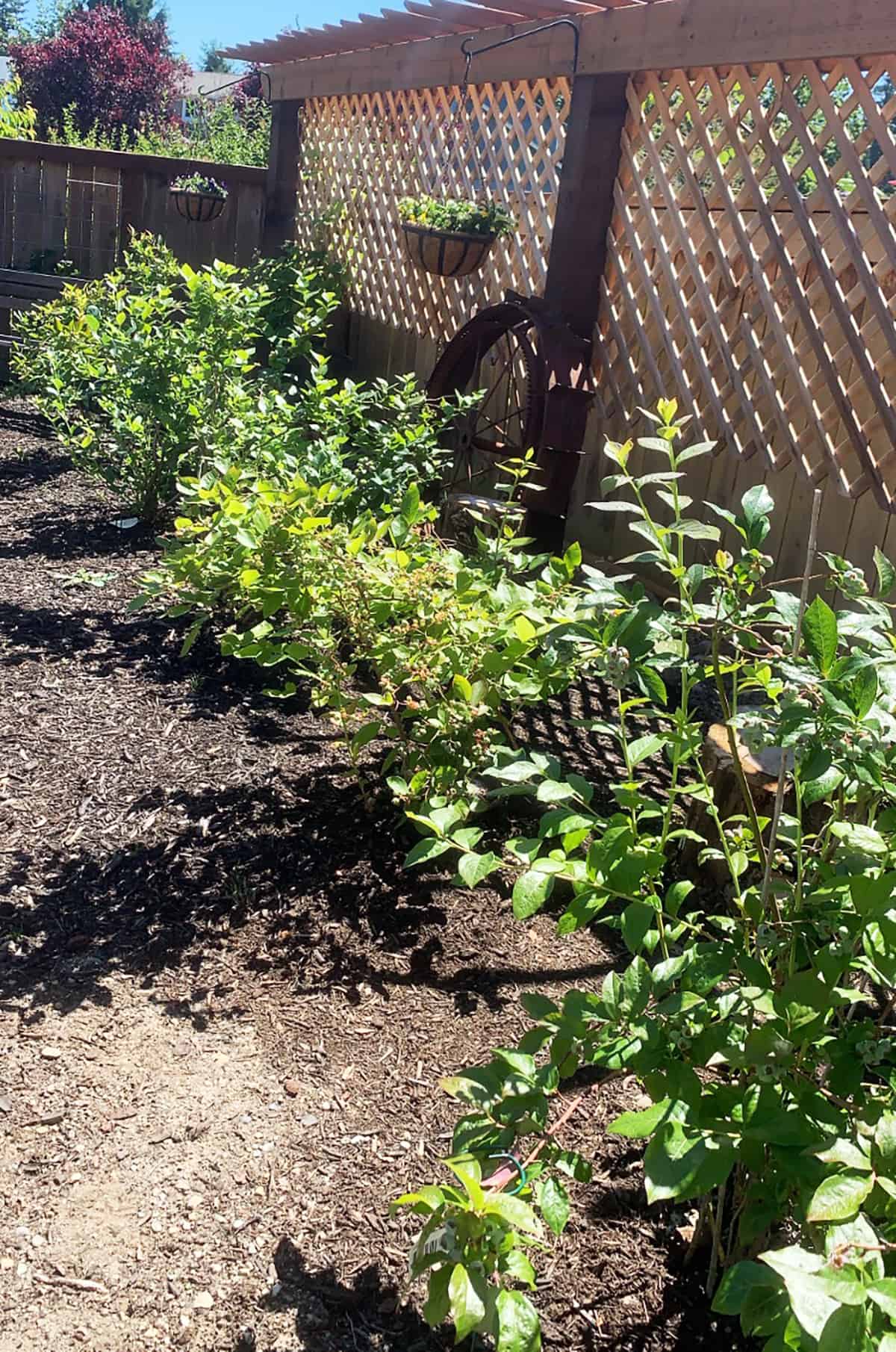
Blueberries also come in varieties by season. This means the fruit is ready at different points in the summer. Varieties include:
- very early season
- early season
- mid season
- late season
- very late season
Planting one of each season will extend the time you have fresh summer blueberries.
When one of my plants is done the other is just ripening. Pay attention to this when selecting your varieties.
Container or Ground
Blueberries are very versatile and can be grown in containers or straight in the ground depending on the variety.
Containers are a great option when you are unable to plant right in the ground.
Again, just make sure you have at least two different plants going at the same time, in the same area. Look for container-friendly blueberries when selecting your plants.
How to Plant
Blueberry plants have a very long lifespan, some living up to 40-50 years! Because of this, it's important that you take the proper care when you first plant to ensure they have the longest, healthiest life they can.
But don't stress! The plant will come with all the planting information you need.
And if purchased from a nursery they will be very knowledgeable about what nutrients are needed for your particular situation.
Full Sun
They require full sun to grow properly. Keep this in mind as you are selecting a spot to plant your blueberries.
Select a spot that gets 6-8 hours of direct sunlight.
Try not to plant around trees, buildings, or other large structures that can block the sun.
Soil
Blueberries are an acid-loving plant with a soil pH of around 4.0-5.0. They also require well draining soil.
When planting your blueberries add in peat moss and some soil amendments to help develop a healthy root system.
If you encounter rocky, clay soil, make sure you raise the bed up at least 12" to provide the best draining soil.
Soil needs can be different for every gardening zone. Speaking to your local nursery or county extension to determine what is best used for your area or for your particular soil.
Or consider getting a soil test prior to planting so you know exactly what needs to be added.
Remember, these plants will last you almost 40 years so it's worth taking these extra steps to ensure you get the most out of them as you can.
Water
Blueberries have shallow roots and require around 1-2 inches of water each week. If the weather is hot and not raining as much this may need to be increased.
It is also recommended to have a few inches of wood or straw mulch on your blueberries. This will help retain moisture and keep out weeds.
How to Care for Blueberries
Blueberries require very little care and why they are one of my favorite things to grow.
Just a little pruning and paying attention to the soil each season will give your plants a long healthy life.
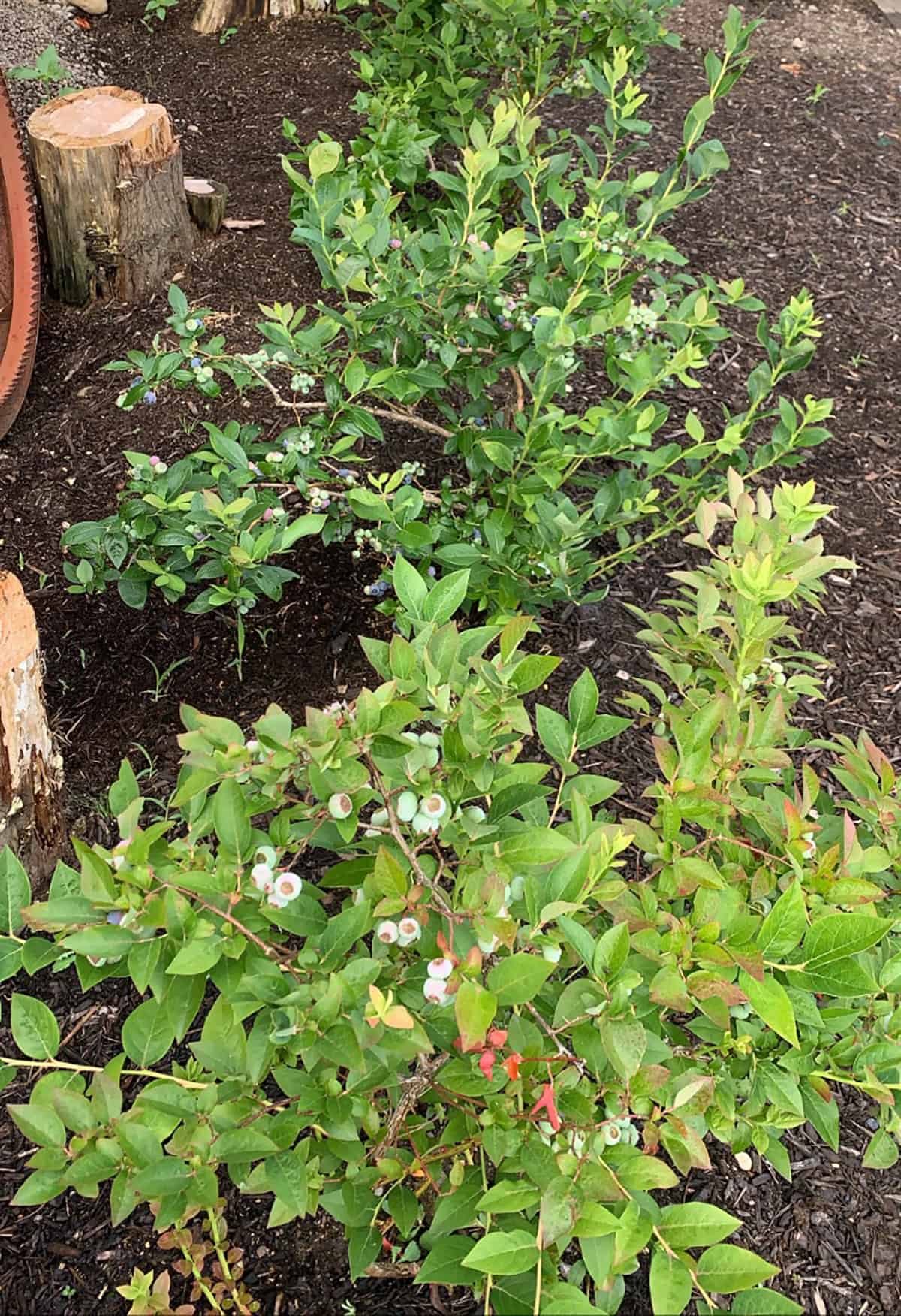
Pruning
Blueberries do require pruning at the start of each season. Just make sure your plants are at least 4-5 years old before the first prune. This is to make sure the plant has a healthy root system and growing well.
The best video on pruning your blueberries is from Melissa K. Norris. I pruned my blueberries for the first a few years ago, and my plants have never looked healthier or produced so much fruit.
I was very nervous and overwhelmed to prune for the first time but Melissa's video took all the guesswork out of it for me and was really easy to follow.
Feeding
They are very hardy plants but do require some additional nutrients. They are also sensitive to over-fertilization so there is a fine balance when fertilizing your blueberries.
Nitrogen-rich fertilizers are ideal such as blood meal, fish meal, or azalea/rhododendron fertilizer.
Provide Support
Weaker blueberry branches may be unable to withstand the weight of all those berries. Support may be necessary. Especially for younger plants.
I use these garden steaks to hold up my branches that may droop from too much weight.
Watch the Birds
Berries are not just loved by us but by wildlife as well. Birds love ripe fruit and will beat you to them if given the chance.
I personally have not experienced this issue, but others will have their entire harvest taken by birds.
There are things you can do!
Consider some bird deterrents such as a scarecrow or reflective tape. You can also put netting around your plants once the berries start to mature.
Typically, if you are picking every day this should not be an issue.
I hope this information gives you the confidence to plant and grow your first blueberry bushes!
Other Blueberry Resources
Recipes with fresh blueberries:



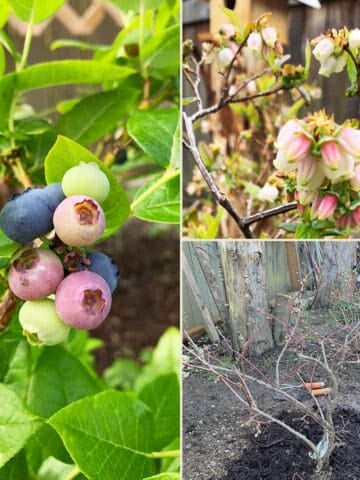
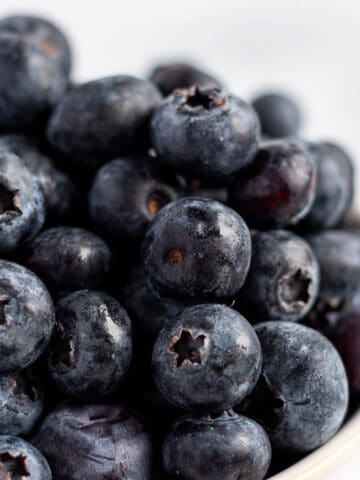
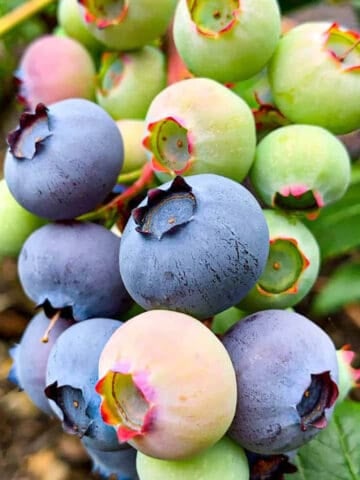
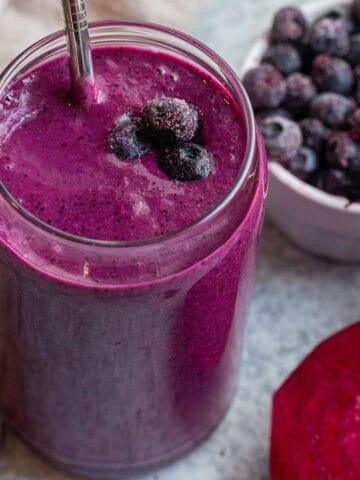

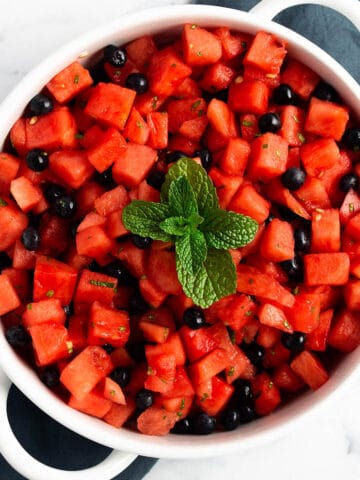
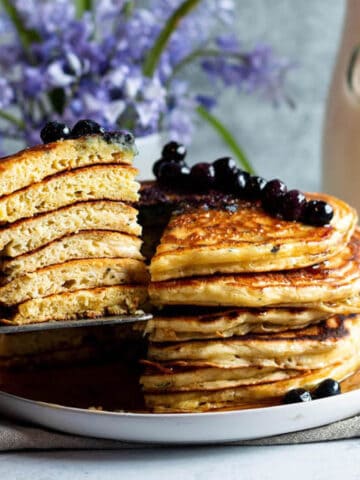
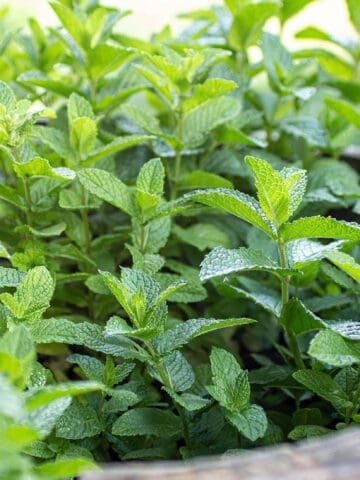
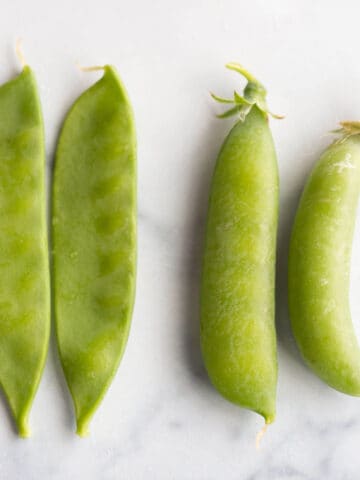

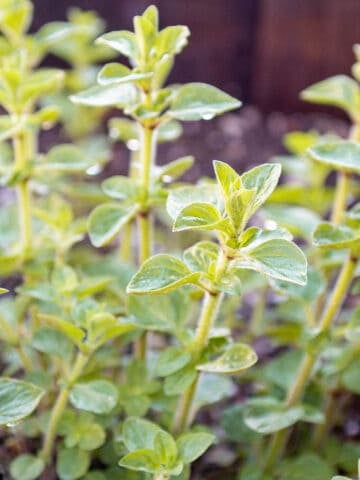
We grow blueberries too and I'm always on the hunt for new recipes. I'm interested to try your beet and blueberry smoothie recipe!
It's a great way to incorporate beets and the blueberries really compliment them. Hope you enjoy it!